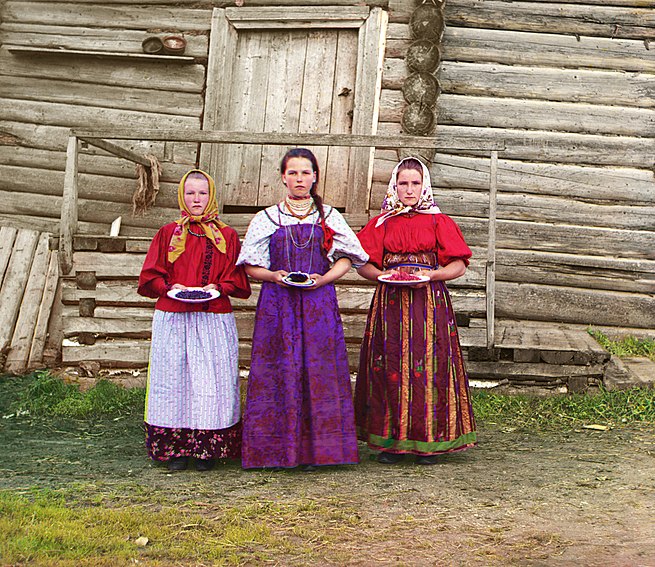
Main Difference
The main difference between Peasant and Serf is that the Peasant is a member of a traditional class of farmers and Serf is a status of peasants under feudalism
-
Peasant
A peasant is a pre-industrial agricultural laborer or farmer, especially one living in the Middle Ages under feudalism and paying rent, tax, fees, or services to a landlord. In Europe, peasants were divided into three classes according to their personal status: slave, serf, and free tenant. Peasants either hold title to land in fee simple, or hold land by any of several forms of land tenure, among them socage, quit-rent, leasehold, and copyhold.The word peasantry is commonly used in a non-pejorative sense as a collective noun for the rural population in the poor and under-developed countries of the world.
-
Serf
Serfdom is the status of many peasants under feudalism, specifically relating to manorialism. It was a condition of bondage, which developed primarily during the High Middle Ages in Europe and lasted in some countries until the mid-19th century.
Serfs who occupied a plot of land were required to work for the lord of the manor who owned that land. In return they were entitled to protection, justice, and the right to cultivate certain fields within the manor to maintain their own subsistence. Serfs were often required not only to work on the lord’s fields, but also in his mines and forests and to labor to maintain roads. The manor formed the basic unit of feudal society, and the lord of the manor and the villeins, and to a certain extent serfs, were bound legally: by taxation in the case of the former, and economically and socially in the latter.
The decline of serfdom in Western Europe has sometimes been attributed to the widespread plague epidemic of the Black Death, which reached Europe in 1347 and caused massive fatalities, disrupting society. The decline had begun before that date. Serfdom became increasingly rare in most of Western Europe after the Renaissance. But, conversely it grew stronger in Central and Eastern Europe, where it had previously been less common (this phenomenon was known as “later serfdom”).
In Eastern Europe the institution persisted until the mid-19th century. In the Austrian Empire serfdom was abolished by the 1781 Serfdom Patent; corvée continued to exist until 1848. Serfdom was abolished in Russia in the 1860s. In Finland, Norway and Sweden, feudalism was never fully established, and serfdom did not exist; however, serfdom-like institutions did exist in both Denmark (the stavnsbånd, from 1733 to 1788) and its vassal Iceland (the more restrictive vistarband, from 1490 until 1894).
According to medievalist historian Joseph R. Strayer, the concept of feudalism can also be applied to the societies of ancient Persia, ancient Mesopotamia, Egypt (Sixth to Twelfth dynasty), Muslim India, China (Zhou dynasty and end of Han dynasty) and Japan during the Shogunate. James Lee and Cameron Campbell describe the Chinese Qing dynasty (1644–1912) as also maintaining a form of serfdom.
Melvyn Goldstein described Tibet as having had serfdom until 1959, but whether or not the Tibetan form of peasant tenancy that qualified as serfdom was widespread is contested by other scholars. Bhutan is described by Tashi Wangchuk, a Bhutanese civil servant, as having officially abolished serfdom by 1959, but he believes that less than or about 10% of poor peasants were in copyhold situations.
The United Nations 1956 Supplementary Convention on the Abolition of Slavery also prohibits serfdom as a form of slavery.
-
Peasant (noun)
A member of the lowly social class that toils on the land, constituted by small farmers and tenants, sharecroppers, farmhands and other laborers on the land where they form the main labor force in agriculture and horticulture.
-
Peasant (noun)
A country person.
-
Peasant (noun)
An uncouth, crude or ill-bred person.
-
Peasant (noun)
A worker unit.
-
Serf (noun)
A partially free peasant of a low hereditary class, slavishly attached to the land owned by a feudal lord and required to perform labour, enjoying minimal legal or customary rights.
-
Serf (noun)
A similar agricultural labourer in 18th and 19th century Europe.
-
Serf (noun)
A worker unit.
-
Peasant (noun)
a poor smallholder or agricultural labourer of low social status (chiefly in historical use or with reference to subsistence farming in poorer countries)
“peasant farmers”
-
Peasant (noun)
an ignorant, rude, or unsophisticated person
“‘That is a civilized drink, you peasant’”
